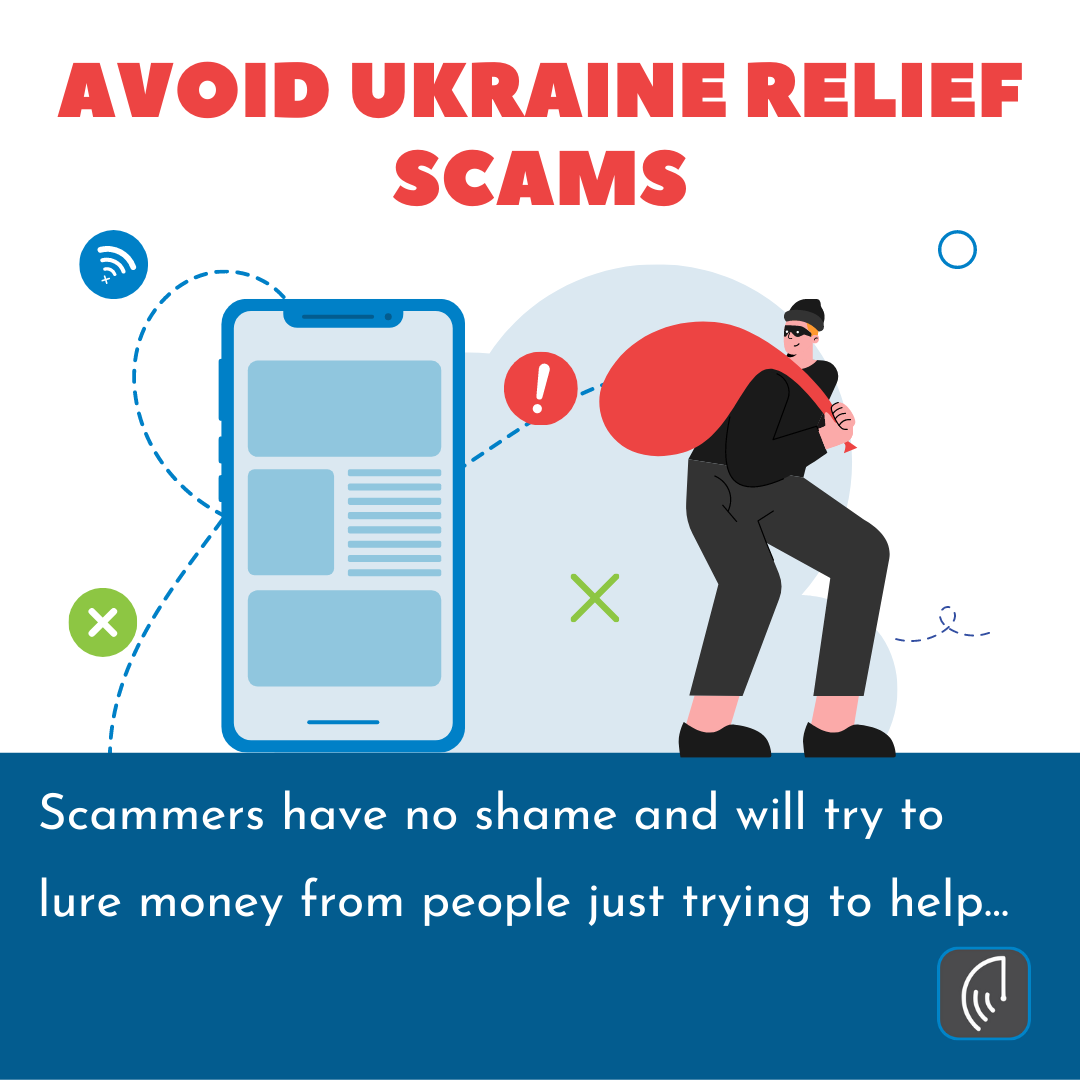As we continue to see the Russian invasion of Ukraine, it is natural that we look for ways to help. Donating money is often one of the best and easiest ways to make an impact. Unfortunately, we need to ensure that we avoid Ukraine relief scams popping up which is causing more chaos.
Scammers have no shame and will try to lure out money from people like you who are just trying to help. Below are some tips to consider while looking to help.
Donation Tips
-
Give to Organizations You Trust:
Do your research before giving. Review the charity’s purpose and find out how the charity spends its donations. How much is spent directly on the charitable cause? How much goes to overhead and employee compensation? You should also confirm the charity’s name, address, and nonprofit status.
-
Be Wary of Social Network Fundraising:
If you are planning to donate through a social network solicitation, first do some research. Find out what percentage is going to the charity, whether you will be charged a fee, or if a percentage of your donation will be paid to the platform website.
-
Don’t Be Pressured by Telemarketers – Ask Questions Before Donating:
If you receive a call from a telemarketer, ask for the name of the fundraising organization, whether it is registered with the Attorney General’s Office, the name of the charity benefitting from the solicitation, how much of your donation will go to charity and how much to the telemarketer, and the direct telephone number of the charity. Don’t fall for pressure tactics or threats. Remember that you have the right to say no and if you feel pressured or threatened, just hang up.
-
Watch Out for Similar-Sounding Names, Web Addresses, and Other Deceptive Tactics:
Fraudulent organizations may use names that closely resemble those of well-established charitable organizations in order to mislead donors. Look out for fraudulent websites that have a slightly different web address (URL) than that of a legitimate charitable organization. Similar-looking URLs are sometimes purchased by fraudsters to lure in would-be donors. These sites may ask you for personal information or install harmful material onto your device. Be skeptical if someone thanks you for a pledge you never made, and always check your records.
-
Understand the Difference Between “Tax-Exempt” and “Tax-Deductible”:
Being a nonprofit does not mean the organization is exempt from taxation, or that your donation is tax-deductible. Generally, a tax-exempt organization is exempt from paying tax on its income/gifts, but may or may not be able to offer tax deductions to donors. Just because an organization has a “Tax ID Number” doesn’t mean it is a charity, tax-exempt, or tax-deductible. A few tax-exempt organizations – 501(c)(3) tax-exempt status – are able to offer charitable tax deductions for your donations. If you are not sure whether your donation is tax-deductible, verify the charity’s tax-exempt status by using the tools and information located on the IRS website.
-
Protect Your Identity:
Never give your Social Security number or other personal information in response to a charitable solicitation. Never give out credit card information to an organization unfamiliar to you. Some organizations sell or rent their donor lists to other organizations, including organizations that are not charities.
Please consider sharing this with others, you may be helping others avoid Ukraine relief scams!
